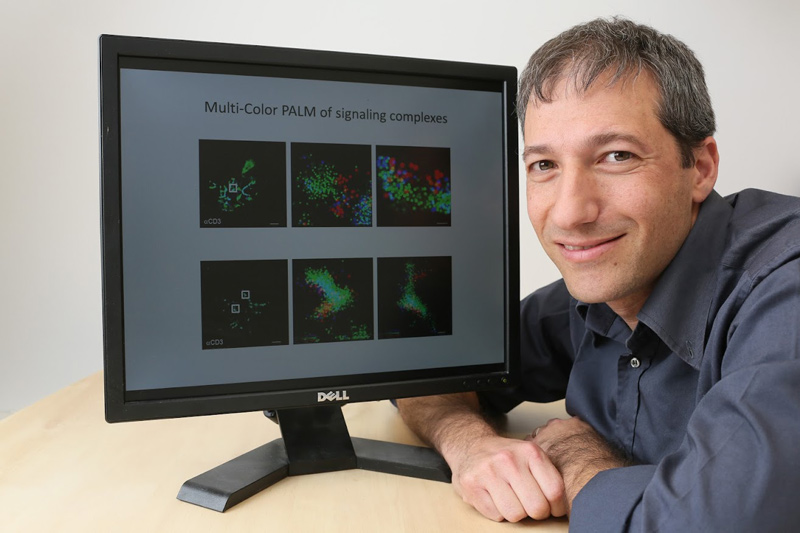July 23, 2023

Yonatan Golan chose to study chemistry and physics at Hebrew University. Although originally less drawn to physics, he found himself immensely enjoying the experimental side of his studies: following protocols and taking measurements in the lab, writing programs to analyze his data, and eventually developing and conducting his own experiments.
He surprised himself by deciding to continue his studies and pursue a master’s degree in physics. Although he struggled through the theoretical courses, he found reprise in his research, conducted in Prof. Eilon Sherman’s experimental biophysics laboratory. Yonatan studied T-cell membranes by observing the proteins on their surface, and eventually published his findings in Nature Communications. “Receiving such external recognition of my research really lifted me up, solidified my faith in my abilities.”
“My studies at Hebrew University helped make me who I am today. I gained crucial skills that are serving me as a scientist: critical thinking, understanding processes, analyzing data.
- Yonatan Golan (BSc Chemistry & Physics, MSc Physics)

For a few years, Yonatan and his brothers had been tossing around ideas about starting something together. One brother, Matan, was wrapping up medical school at the Hebrew University’s Faculty of Medicine. The other brother, Ido, had been the chief engineer at an algae biotech company. Together, they started a company and named it Brevel, honoring their grandfather’s entrepreneurial spirit – he’d founded and grown the Brevel motor company back in the 1930s. They were joined by a former colleague of Ido’s, whose background is in biology.
Yonatan and his team got to work, seeking ways to grow more, better, and cost-effective algae, with the intent of marketing it to the food industry as a fast-growing, healthy, and eco-friendly food source. (For more information on the importance of algae, read below).
A bit of background: Algae can be grown outdoors, in natural sunlight, resulting in a slow-growing, high-quality, yet labor-intensive product. Alternatively, it can be fed sugar and grow bountifully within bioreactors, which must be sterile and dark – but the lack of sunlight affects the nutritious quality of the algae, and sterilization is costly.
The Brevel team eventually re-designed the bioreactors and valves, registering three patents. Today Brevel is the first and only company in the world to grow algae using both natural sunlight and sugar, producing algae that is high quality and low-cost, using scalable methods. Brevel is running pilots with food companies in Israel and abroad, and is working to establish its first factory, which will be located in the southern town of Kiryat Gat. Looking ahead, Yonatan hopes to begin full-scale production by 2024. “Brevel is in this for the long run,” he says. “We’re establishing a new industry in Israel. I’m proud and excited to see the impact that Brevel will have, both locally and globally.”
Brevel has won numerous awards, including first place in MassChallenge in both Israel and Switzerland. The company was also selected for the Google for Startups Accelerator: Sustainable Development Goals (SDGs).
What are Alternative Proteins?
The field of alternative proteins aims to replace animal-based products such as meat and dairy with alternatives created from plants, fungi, microorganisms (e.g. algae), or cultivated animal cells, which is meat grown and harvested in a lab, rather than from animals. Today, animal-based products are costly – in terms of the amount of land, water, and energy required. As the world population grows and entire countries adopt a higher standard of living, the consumption of animal-based products continues to rise. Ultimately, the alternative protein market strives to do more with less – to feed more people higher quality food, using a small fraction of the resources required to produce animal-based products. Hebrew University faculty and alumni are leading the way, making Israel a global leader in the field.